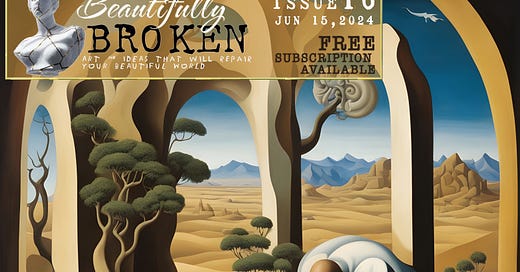Beautifully Broken Issue #16: Control: Humanity vs Nature
IDEAS, ART & WISDOM TO REPAIR YOUR BEAUTIFUL WORLD
Keep reading with a 7-day free trial
Subscribe to Beautifully Broken to keep reading this post and get 7 days of free access to the full post archives.




